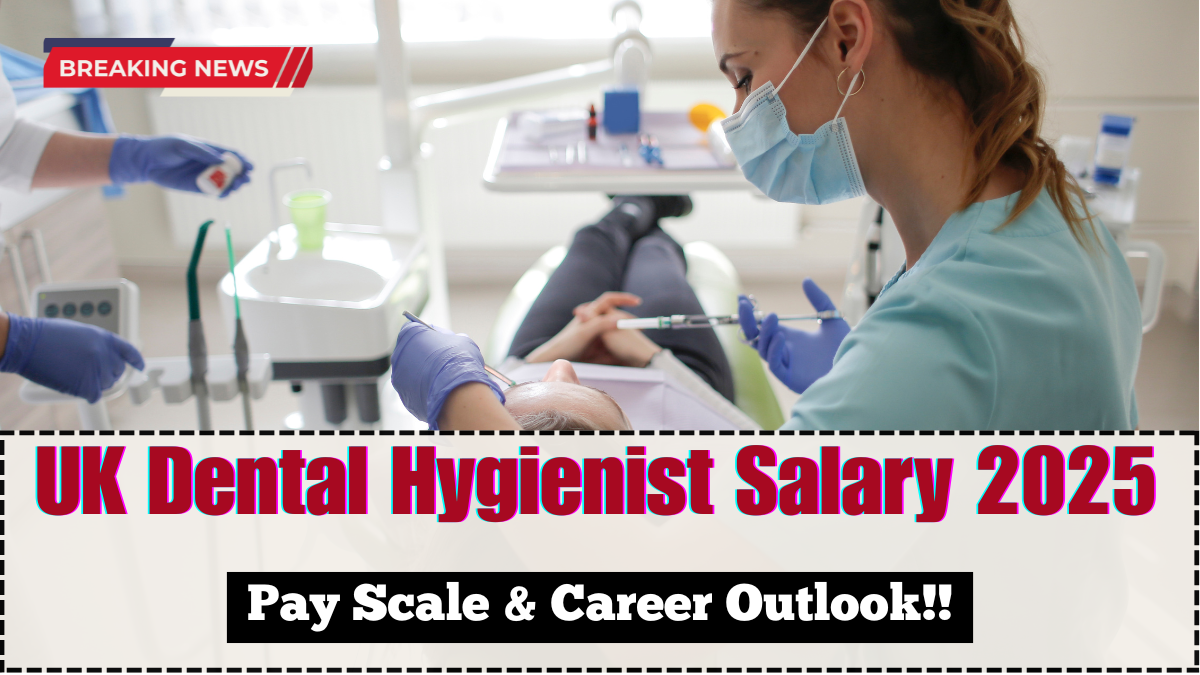The demand for skilled dental professionals continues to rise in the UK, and one role gaining prominence in 2025 is that of the dental hygienist. With a strong focus on preventative care and oral health awareness, UK Dental Hygienist Salary 2025 has seen a notable increase across both NHS and private sectors.
As dental care becomes more integral to general health, the importance of hygienists in clinical settings has also expanded. Patients now seek more routine cleanings, periodontal support, and preventative guidance, all of which are core functions performed by hygienists. In return, salaries have improved, and job security remains strong.
If you’re considering a career in oral healthcare or are already in the field, understanding the current trends in compensation and career growth is essential. Let’s explore the current pay scale, job opportunities, and expected growth in dental careers UK 2025.

Average Dental Hygienist Salary in 2025
According to the latest NHS data and job market reports, the UK Dental Hygienist Salary 2025 ranges between £28,000 to £48,000 annually, depending on the work setting, location, and experience level.
| Experience Level | Average Salary (Annual) |
|---|---|
| Entry-Level (0–2 years) | £28,000 – £32,000 |
| Mid-Level (3–7 years) | £33,000 – £40,000 |
| Senior (8+ years) | £41,000 – £48,000 |
Hygienists working in private practices or specialist dental clinics often earn above-average salaries, with some professionals even earning £50,000+ annually with commissions, especially if they assist in cosmetic or implant procedures.
NHS vs Private Sector Earnings
Hygienists employed by the NHS are usually paid under the Agenda for Change (AfC) pay bands, most commonly Band 5 or Band 6.
-
Band 5: £28,407 to £34,581
-
Band 6: £35,392 to £42,618
In contrast, those in the private sector may enjoy higher flexibility, bonus incentives, and earnings based on appointments and productivity. As part of healthcare jobs, the private dental market offers more diverse income potential but with fewer benefits than the NHS system.
Job Demand and Career Outlook
The career outlook for dental hygienists is exceptionally strong. With increased awareness about preventative oral care, the UK is witnessing a surge in demand for hygienist-led services. According to forecasts in dental careers UK 2025, this trend is expected to continue for the next decade.
Key trends fueling growth include:
-
Increased Routine Cleanings: Patients are scheduling 6-monthly cleanings to avoid complex treatments.
-
Gum Disease Awareness: More patients seek help for early-stage gum problems.
-
Cosmetic Dentistry: Hygienists are assisting in teeth whitening and smile makeovers.
-
Public Health Campaigns: The government’s push for oral health is driving more dental appointments.
With a balanced work schedule, opportunities for flexible shifts, and rising respect in the medical community, a career in dental hygiene is now one of the most rewarding healthcare jobs in the UK.
How to Become a Dental Hygienist in the UK
To join the profession in 2025, the following path is recommended:
-
Complete a General Dental Council (GDC)-approved diploma or degree in dental hygiene.
-
Register with the GDC.
-
Complete CPD (Continuing Professional Development) courses regularly.
-
Build clinical experience through placements or associate roles.
Many hygienists also explore dual qualifications in therapy to increase their scope and salary potential.
FAQs
What is the average UK Dental Hygienist Salary 2025?
The average salary in 2025 ranges from £28,000 to £48,000 per year, depending on experience and sector.
Do dental hygienists earn more in private practice?
Yes, hygienists in private clinics often earn higher than NHS counterparts, especially with added incentives and cosmetic treatment support.
Is there high demand for hygienists in 2025?
Yes, demand for dental hygienists is increasing due to the focus on preventative oral health and routine cleanings.
Are dental hygienist roles full-time?
Many roles offer flexible part-time or full-time options, making it a suitable career for work-life balance.
How do I train to become a dental hygienist?
You need to complete a GDC-approved diploma or degree in dental hygiene and register with the GDC.
Click here to know more.
